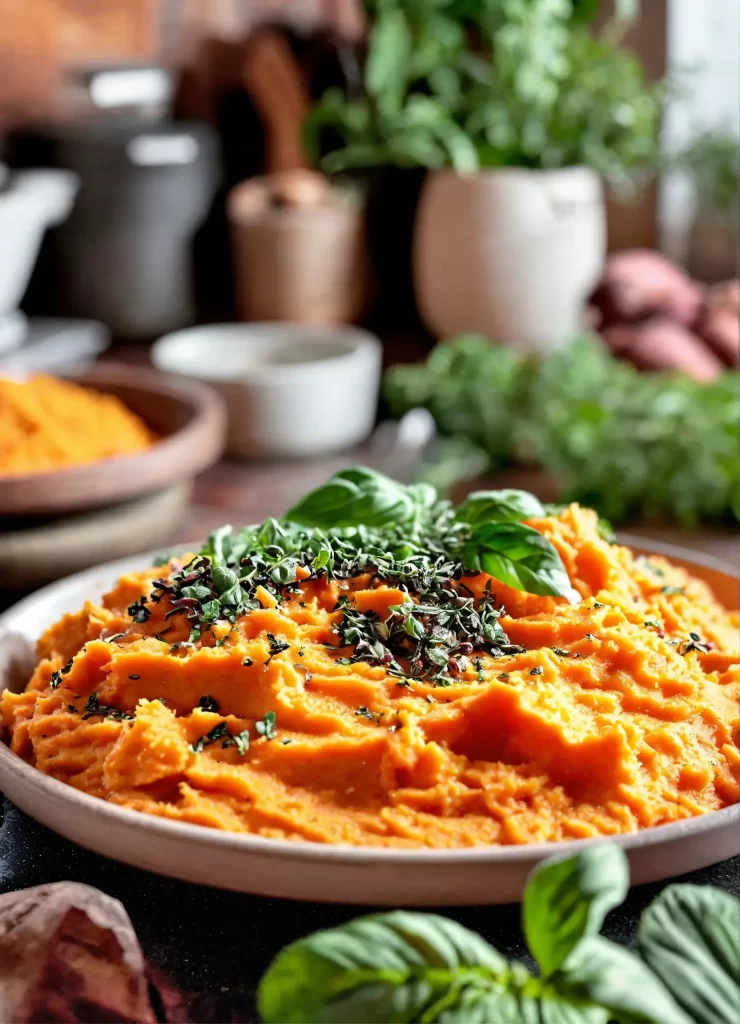Welcome to our ode to sweet potatoes! Dive into the world of this versatile, nutrient-packed tuber that not only tantalizes taste buds but also offers a plethora of health benefits and boosts athletic performance. Let’s explore why sweet potatoes deserve a prominent place in your diet.
Savoring Sweet Potatoes: A Nutritious Delight
Health Benefits:
- Rich in Antioxidants: Sweet potatoes are packed with antioxidants like beta-carotene, which may help fight inflammation and protect against chronic diseases.
- Supports Digestive Health: High in fiber, sweet potatoes promote healthy digestion and may reduce the risk of constipation.
- Boosts Immunity: Loaded with vitamins and minerals, sweet potatoes bolster the immune system, keeping illnesses at bay.
- Regulates Blood Sugar: Despite their sweetness, sweet potatoes have a low glycemic index, helping to stabilize blood sugar levels.
Athletic Performance:
- Sustained Energy: With complex carbohydrates, sweet potatoes provide a steady release of energy, ideal for fueling workouts and enhancing endurance.
- Muscle Recovery: The potassium content in sweet potatoes aids in muscle recovery post-exercise, reducing cramps and promoting faster healing.
- Electrolyte Balance: Potassium and magnesium in sweet potatoes help maintain electrolyte balance, crucial for optimal muscle function during intense physical activity.
Ways to Enjoy Sweet Potatoes:
- Baked Sweet Potato Fries: Slice sweet potatoes into strips, season with herbs and spices, and bake for a healthier alternative to regular fries.
- Sweet Potato Mash: Boil sweet potatoes until tender, mash with a touch of butter or olive oil, and season to taste for a creamy side dish.
- Roasted Sweet Potato Salad: Toss roasted sweet potato cubes with mixed greens, nuts, seeds, and a tangy vinaigrette for a satisfying salad.
- Sweet Potato Breakfast Hash: Sauté diced sweet potatoes with onions, bell peppers, and your choice of protein for a hearty and nutritious breakfast option.

Nutritional Information:
| Nutrient | Amount per 100g |
|---|---|
| Calories | 86 |
| Carbohydrates | 20.1g |
| Fiber | 3g |
| Protein | 1.6g |
| Fat | 0.1g |
| Vitamin A | 283% DV |
| Vitamin C | 2% DV |
| Potassium | 10% DV |
| Iron | 4% DV |
| Calcium | 3% DV |
FAQs:
-
Are sweet potatoes healthier than regular potatoes? While both are nutritious, sweet potatoes tend to have more fiber and vitamins, particularly vitamin A, making them a slightly healthier option.
-
Can I eat sweet potatoes if I’m trying to lose weight? Yes, sweet potatoes can be part of a weight-loss diet when consumed in moderation, as they are lower in calories and rich in fiber, which can help you feel fuller for longer.
-
Are sweet potatoes suitable for people with diabetes? Sweet potatoes have a lower glycemic index compared to regular potatoes, but portion control is still important for managing blood sugar levels. It’s best to consult with a healthcare provider or dietitian for personalized advice.
-
How should I store sweet potatoes? Store sweet potatoes in a cool, dark place away from moisture. Avoid refrigerating them, as this can alter their texture and flavor.
What is the Healthiest Way to Eat Sweet Potatoes?
The healthiest way to eat sweet potatoes is by steaming or baking them. These methods preserve the most nutrients and avoid adding unnecessary fats. When baking, try drizzling with a small amount of olive oil and seasoning with herbs instead of butter or sugary toppings.
Are Sweet Potatoes Healthier Than Plain Potatoes?
Sweet potatoes are generally considered healthier than plain potatoes due to their higher levels of vitamins A and C, fiber, and antioxidants. They also have a lower glycemic index, which means they do not cause a rapid spike in blood sugar levels.
Is It Better to Boil or Bake Sweet Potatoes?
Baking sweet potatoes is often preferred over boiling because it helps retain more of the nutrients, especially vitamins and minerals. Boiling can cause some water-soluble nutrients to leach into the water, which are then lost when the water is discarded.
Should You Eat the Skin of Sweet Potatoes?
Yes, you should eat the skin of sweet potatoes. The skin is packed with fiber, vitamins, and antioxidants. Make sure to scrub the skin thoroughly before cooking to remove any dirt or pesticides.
When Should You Not Eat Sweet Potatoes?
You should not eat sweet potatoes if they have sprouted, developed a bitter taste, or show signs of mold. These can indicate spoilage and potential toxins. Additionally, if you have kidney problems or are on medication that affects potassium levels, consult with a healthcare provider before consuming sweet potatoes regularly.
Is Microwaving Sweet Potatoes Healthy?
Yes, microwaving sweet potatoes is healthy. It is a quick method that preserves most of the nutrients. To microwave, pierce the skin several times with a fork and cook on high for 5-10 minutes, turning halfway through.
Do You Peel Sweet Potatoes Before Boiling?
No, you do not need to peel sweet potatoes before boiling. Boiling with the skin on helps retain more nutrients. After boiling, the skin can be easily removed if desired.
Can I Eat Sweet Potato Skin?
Yes, you can eat sweet potato skin. The skin contains beneficial nutrients and fiber, making it a healthy part of the vegetable. Just ensure it is well cleaned before eating.